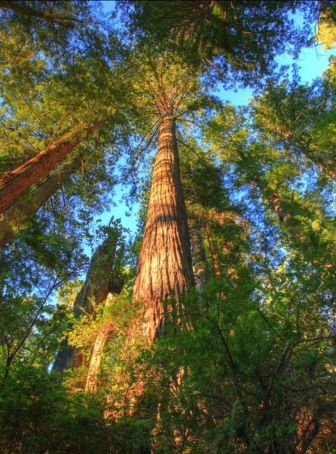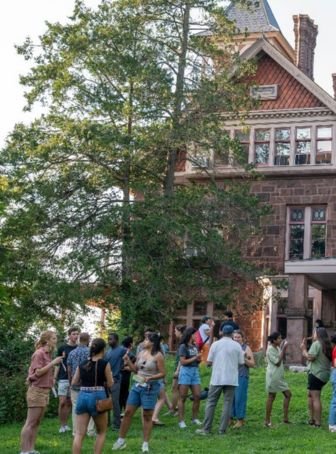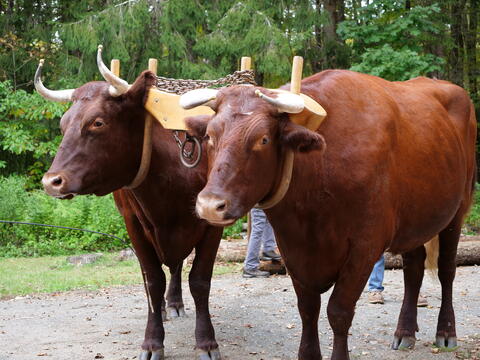
By Adam Houston ’18 YC, ’21 MEM, Quiet Corner Initiative and Research Manager
Two new agroforestry projects took root at Yale-Myers Forest (YMF) this fall. Dr. Joe Orefice, director of forest and agricultural operations at Yale Forests, was awarded a grant from the USDA Acer Access and Development program to set up a demonstration sugarbush at YMF. Orefice, Emma Broderick ’23 MF, Mary Katherine DeWane ‘23 MF, and YMF caretaker Steve Prinn worked tirelessly throughout the fall to string lines between sugar maple trees, build a sugaring shack, and install an evaporator. Orefice kicked off a workshop series (link is external) with a field exercise on maple silviculture, which was attended by several neighboring landowners interested in promoting sugar maples on their own properties. More workshops will be held this spring during sugaring season and will cover every aspect of syrup production from tree to bottle. Sign up for the Quiet Corner Initiative’s newsletter (link is external) for workshop announcements and find past announcements here (link is external).
Karam Sheban ‘20 MF received a grant from the USDA Sustainable Agriculture Research and Education (SARE) program to set up a region-wide project on understory medicinal herb cultivation (link is external), also called forest farming. While at Yale, he studied ginseng cultivation in the Catskills and was inspired to start a community group for New England forest farmers. Relying on the model of the Appalachian Beginning Forest Farming Coalition, the Northeast Forest Farmers Coalition will bring together forest farmers to share ideas, build connections, and create more opportunities for growth in the market.
In addition, Sheban and a team of forestry graduate students set up research plots across the region to test different methods of cultivation for five important herbs: ginseng, goldenseal, bloodroot, black cohosh, and ramps. At Yale-Myers, the team spent several weekends planting seeds and rootlets in a site where survival, growth, and yield of the plants will be monitored in order to better inform forest farmers about the impacts of different planting strategies. Sheban was a post-graduate Forest Fellow at The Forest School at the Yale School of the Environment and is now the Director of Forestry at Rural Action, a community development non-profit in Athens, Ohio. Forest farming is an important aspect of Rural Action’s work with landowners in Ohio, where it helps generate sustainable income from forests. We look forward to seeing this project grow at Yale-Myers Forest and beyond.







